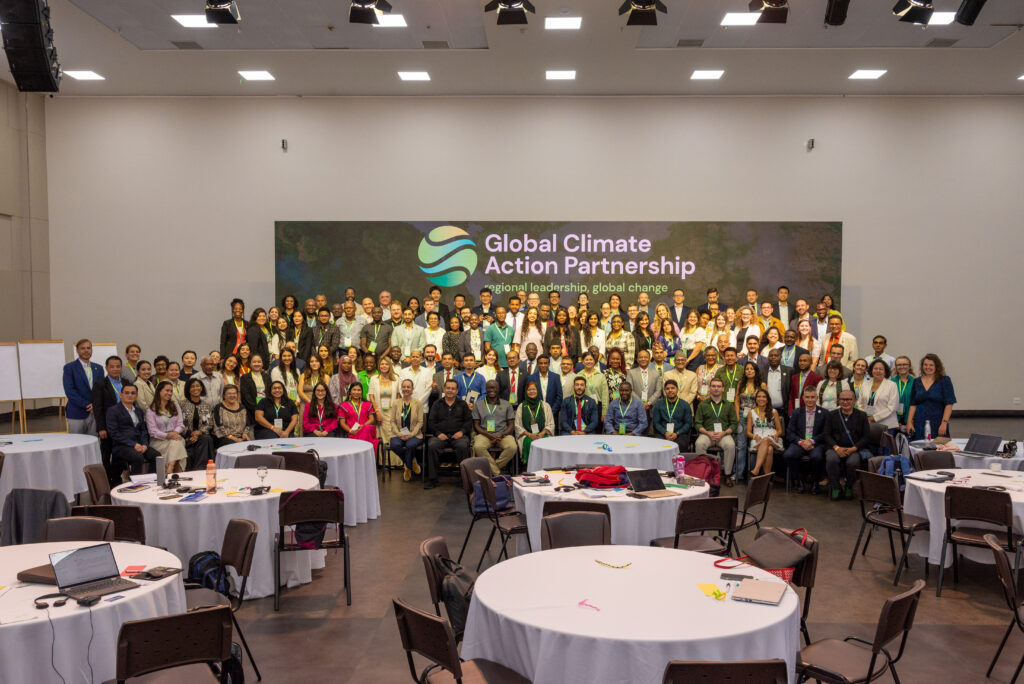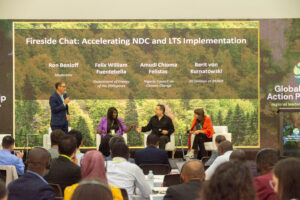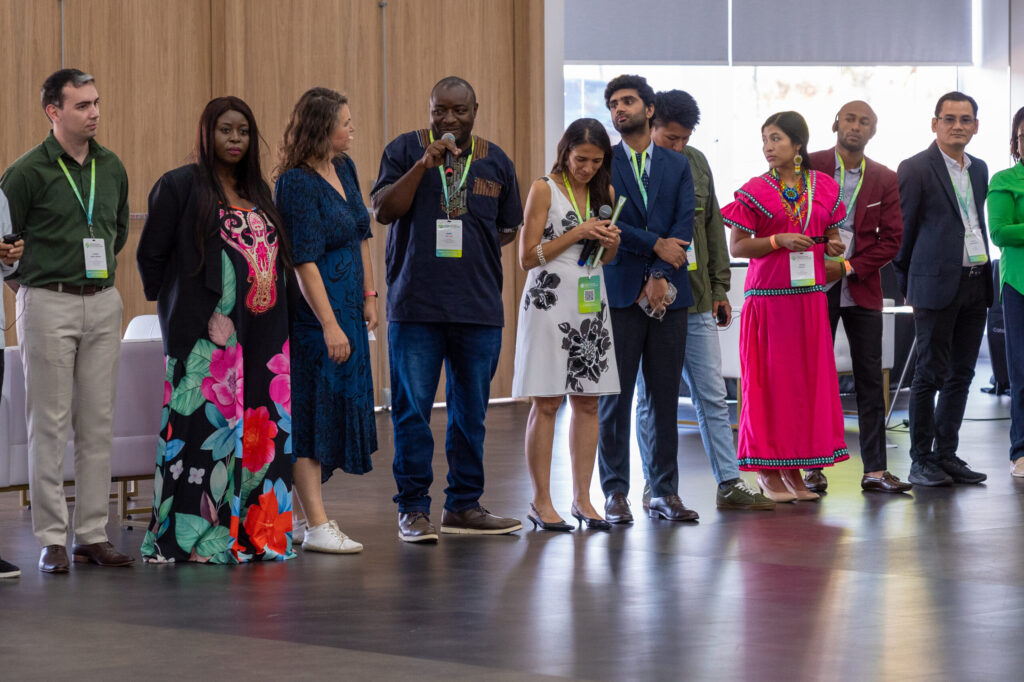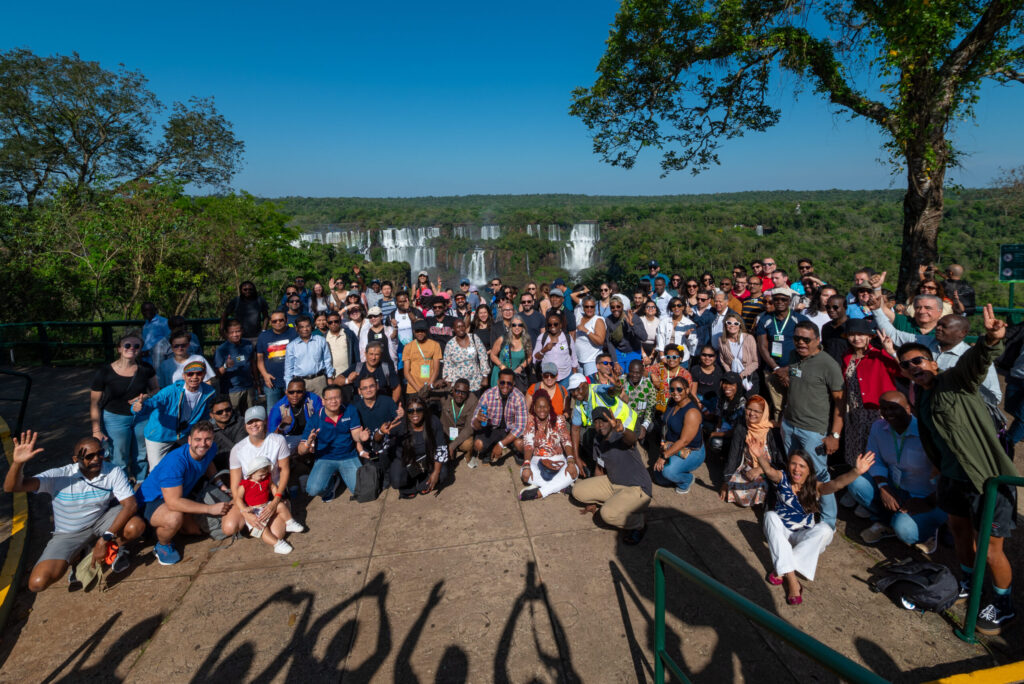
News
Key Insights from the 2024 GCAP Global Workshop — Together Towards Mission 1.5: Enabling Local Action to Drive Global Change
This Video is hosted on Youtube. If you click to play, a connection to the provider's servers is established. Personal data may be communicated to the provider in the process. For more information, see our Privacy Policy
The 2024 Global Climate Action Partnership (GCAP) Global Workshop brought together over 200 climate leaders, policymakers, and stakeholders to discuss tangible pathways for accelerating the implementation of Nationally Determined Contributions (NDCs) and aligning them with Long-term Strategies (LTS). The workshop focused on three pivotal themes over three days: Raising Ambition, Accelerating Implementation, and Ensuring a Just and Resilient Transition. These themes provided a comprehensive lens to address the multifaceted challenges of climate action.


Day 1: Raising Ambition
The workshop opened with an inspiring keynote from Professor Tanara Lauschner, Brazil’s Undersecretary of Science and Technology for the Amazon, emphasizing the critical role of robust, accurate, and transparent GHG inventories and MRV systems. Regional leaders from GCAP’s platforms—including Roy Bouwer from the African Climate Action Partnership (AfCAP), Soumya Chaturvedula from the Asia LEDS Partnership, and Virginia Vilariño from LEDS LAC—underscored the importance of a country-driven approach, emphasizing the role of multilevel governance to integrate state and non-state actors effectively.
During the session on NDC 3.0 updates, panelists from UNFCCC, UNDP, the NDC Partnership, and the U.S. Department of State called for more ambitious climate actions and the inclusion of all sectors in developing innovative solutions. Throughout the day, Brazilian leaders also discussed their progress towards net-zero by 2050, highlighting key advancements in sustainable agriculture and the need to engage diverse stakeholders, including the private sector and indigenous communities.

Day 2: Accelerating Implementation
On Day 2, discussions centered around scaling up the implementation of NDCs and LTS across sectors. In a fireside chat, leaders from the Philippines, Nigeria, and Germany shared challenges and success stories, illustrating the complexity of transitioning to greener economies. Notably, Felix William Fuentebella from the Philippines proposed incentivizing clean energy use and penalizing polluters to drive investment in green infrastructure.
Amudi Chioma Felistas, the National Desk Officer for NDC/LT-LEDS for the Council on Climate Change in Nigeria, discussed ways in which climate actions have been aligned with national development priorities, stressing the importance of integrating climate objectives into key economic sectors such as energy and agriculture.
A key focus was the importance of scaling climate finance and private sector involvement. As noted by Berit von Kurnatowski from Germany’s IKI Division for Germany’s Federal Ministry for Economic Affairs and Climate Action, international partnerships are crucial for addressing global challenges. This sentiment echoed throughout the day, stressing that climate finance must be paired with robust governance frameworks and effective incentives to engage private and public sectors alike.
Day 3: Ensuring a Just and Resilient Transition
The final day highlighted the need for inclusive strategies to ensure a just transition for all, particularly vulnerable communities. Case studies from Fiji, Tanzania, and Panama demonstrated how countries are embedding principles of equity and justice into their climate strategies. For instance, Reshma Ram from Fiji’s Ministry of Environment and Climate Change described how the country’s Solar Home System has increased job creation and reduced fossil fuel dependency, actively including indigenous groups.

Participants from Latin America and Africa emphasized the integration of climate-smart agriculture and the value of indigenous knowledge. For example, Lilibeth Jimenez from Colombia advocated for blending traditional knowledge with modern innovations to make interventions culturally inclusive and locally effective.
Cross-Cutting Key Findings
Throughout the three days, several cross-cutting findings emerged:
- Collaboration and Partnerships: Participants emphasized cross-sectoral collaboration and partnerships among researchers, local communities, public sectors, and private enterprises. The parallel sessions highlighted the emerging need for regional integration into national frameworks and peer learning as crucial to enhancing implementation and sharing best practices.
- Data, Monitoring, and Evaluation: Participants identified reliable, science-based data was identified as critical for effective climate planning and GHG inventories. They called for robust systems to track progress and improved data collection to guide decision-making.
- Integrated Approaches and Holistic Planning: Participants stressed the need for holistic strategies that align energy, transport, and agriculture with climate goals. They highlighted transitioning from NDCs to National Transition Plans (NTPs) as a way to achieve phased, integrated strategies for resilience and mitigation.
- Capacity Building and Technical Support: Participants recognized the need for local and national capacity building and emphasized providing technical and financial support to local actors to facilitate climate initiatives.
- Financing and Investment Strategies: Discussions centered on identifying risks and utilizing diverse financial instruments, such as green bonds. Participants underscored the need to align financial resources with long-term climate goals to encourage investment.
- Infrastructure and Policy Frameworks: Participants highlighted the importance of enabling infrastructure and supportive public policies was highlighted to foster greener practices across sectors, ensuring policy continuity amid political changes.
- Sustainability, Adaptation, and Resilience: Participants emphasized the need to integrate climate-smart practices in agriculture and transport while prioritizing sustainability and resilience alongside mitigation.
- Emerging Practices and Innovations: Countries shared successful strategies and pilot projects, highlighting the role of technology and digital tools for improved resource management.
Celebrating Climate Leadership: 2024 GCAP Climate Action Leadership Awards
The GCAP Climate Action Leadership Awards recognized six leaders for their exemplary contributions to climate action:
- Esther Wang’ombe (Kenya) for rehabilitating degraded forests and promoting community-driven climate action.
- Vincent Nikiema (Burkina Faso) for empowering women with agroecological skills and innovative climate-smart solutions.
- Carolina Martínez Cuéllar (Colombia) for leading Bogotá’s electric bus fleet and promoting social inclusion.
- Karunarathnalage Lilan Udayanga Dayananda (Sri Lanka) for leveraging IoT and technology to revolutionize small-scale farming.
- Muhammad Hammad Abbasi (Pakistan) for mobilizing youth and inclusive climate action through VGreenO.
- Sebastian Habeger Pilla Quinchiguango (Ecuador) for championing youth engagement in climate action in the Galapagos.
Reflections and Next Steps: Strengthening Collaboration for Global Climate Action
As the GCAP Global Workshop concluded, participants reaffirmed the importance of stronger global collaboration to meet the challenges of climate change. By fostering partnerships, enhancing climate finance, and ensuring inclusivity, the global community can chart a path towards a more equitable, resilient, and sustainable future.

